Is Apollo Justice gay? I methodically punch into Google after just five minutes with Apollo Justice: Ace Attorney Trilogy.
Beyond the raw psychic damage this did, throwing me back to my pre-teen years skulking around the internet for queer scraps, I had to admire how quickly Apollo’s characterisation made an impact. Some context: I’ve never played the Ace Attorney games, though they’ve existed in my periphery for decades as the kind of experiences you file under “I should really get around to those.” Stylised courtroom investigative dramas turned visual novels, the franchise has its roots all the way back in the GameBoy Advance days, though its fandom truly solidified around the Nintendo DS family of systems.
With the blueprint firmly established by Phoenix Wright: Ace Attorney Trilogy, an HD collection of the first three titles in the series ported across multiple platforms, it would have been surprising if Capcom had messed up its next run at it. Sure enough, Apollo Justice: Ace Attorney Trilogy sticks the landing; the most complete and feature-rich way to experience these titles on modern hardware, this remaster was the best possible approach vector for a newcomer to experience the franchise.
Laws of attraction
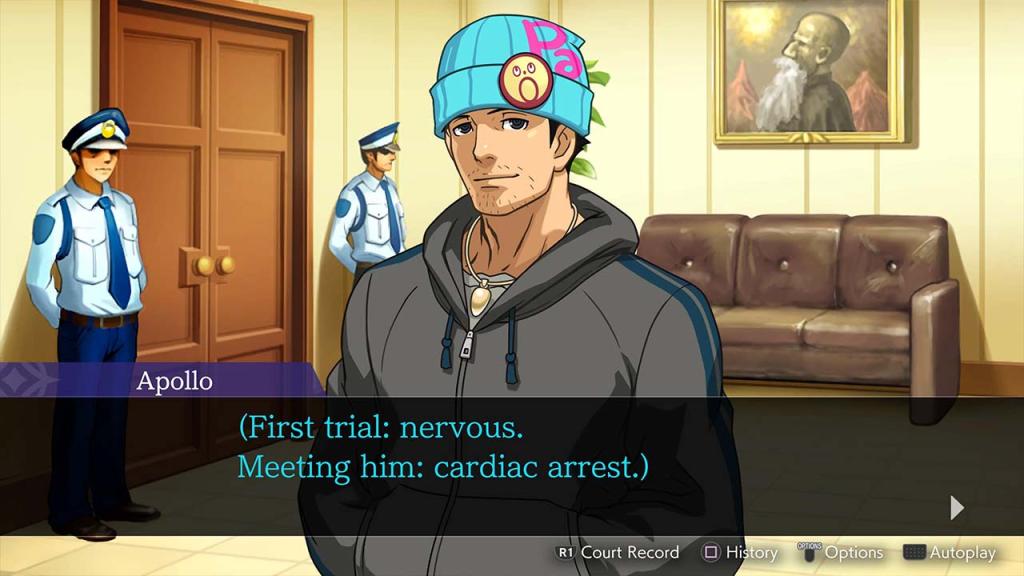
Apollo Justice: Ace Attorney Trilogy is more than happy to let you simply vibe out and experience the story at whatever pace and challenge level you want. These games are wordy little beasts, the short bursts of interactivity buttressed by hours of lengthy dialogue segments and descriptive text. You’re more than welcome to hammer X to move things along, but the game smartly plants an auto-advance option on the screen, letting you relax and enjoy it like a novel until your input is required.
Being a courtroom drama, the bulk of your interactivity is tethered to inspecting crime scenes, evidence, and eventual cross-examination of witnesses in iconic series fashion. The first time I heard the OBJECTION! outburst I immediately understood why it had imprinted on so many players before me. I will always lament the loss of touchscreen interactivity, but the transition to modern hardware is a seamless one. Every bit of relevant information is catalogued into a clean UI, with a basic but enjoyable 3D model examination.
At key times during witness testimony, you’ll be able to interject by seeking further clarification on a statement. You can identify contradictions in witness testimonies by paying close attention and comparing them against the hard evidence you’ve collected. It’s a cat-and-mouse game of deduction and deliberate wording, and even the trilogy’s lengthier cases rarely ever get old. Apollo Justice: Ace Attorney Trilogy is a remarkably well-constructed and considered run of stories, but perhaps its smartest move is knowing when to meet its player halfway.
Consultation Mode gives the game a heads-up that if you’re struggling to piece a case together, it has your permission to call a brief recess in court and talk you through some of the key points to better guide your next session in front of the judge. The game goes one step further with Story Mode, a completely hands-off experience that combines the auto-advance text option with auto-completing puzzles, allowing you to sink into the couch and story alike. It’s a radical take on quality-of-life, giving the player complete control over their experience in a way that speaks to the confidence Capcom still has in the trilogy’s writing and overall presentation.
Serving Supreme C*nt
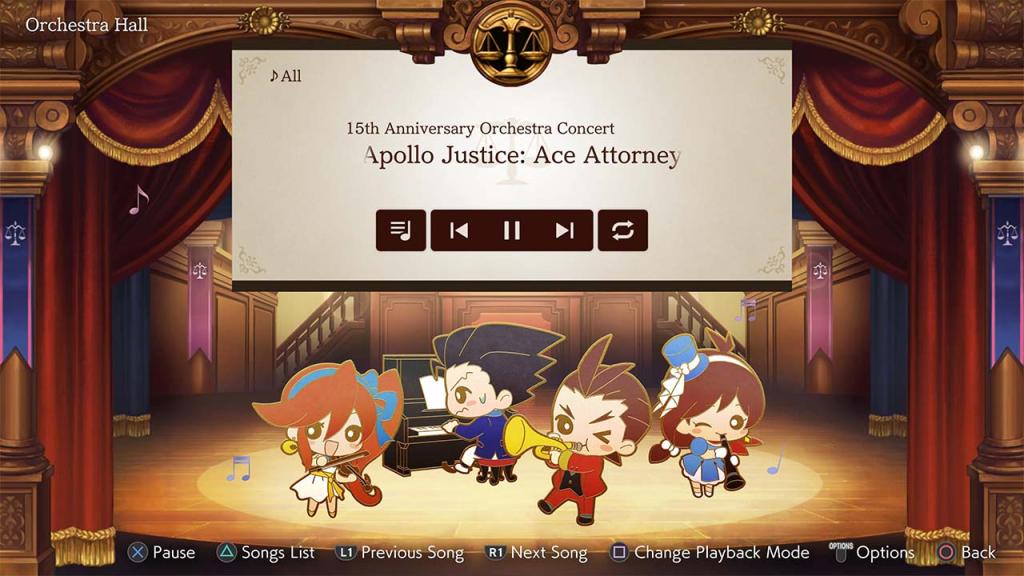
It isn’t hard to see why Apollo Justice: Ace Attorney Trilogy spares no expense in its remastering efforts, unifying games that existed across two separate platforms and art styles into a cohesive, gorgeously crafted package. Apollo Justice, the first game in this sequel trilogy and the furthest from contemporary resolution standards, has been lovingly restored, its pixel art animations refined and translated perfectly to the big screen. Its follow-ups, Dual Destinies and Spirit of Justice, clear the jump a little more easily, their animated cutscenes and 3D character models feeling crisply expressive and made for such a remaster.
Elsewhere, Apollo Justice: Ace Attorney Trilogy neatly collects the franchise’s history. On top of the standard array of remaster throwbacks (The Orchestra Hall is a jukebox of over a hundred tracks from the games and pairs nicely with The Art Gallery), the trilogy gets a little weird with its fan service. DLC cases from the 3DS titles make a comeback, accessible from the game’s stellar menu that allows you to jump between games and cases at will, and you can play dress up with bonus costumes for the main cast. Animation Studio even lets you construct full-blown scenes, posing characters in various backdrops and dipping into a bucket of line recordings and game audio. It’s super cute and a perfect capstone to the trilogy’s excellent historical documentation and presentation.
I will make it legal
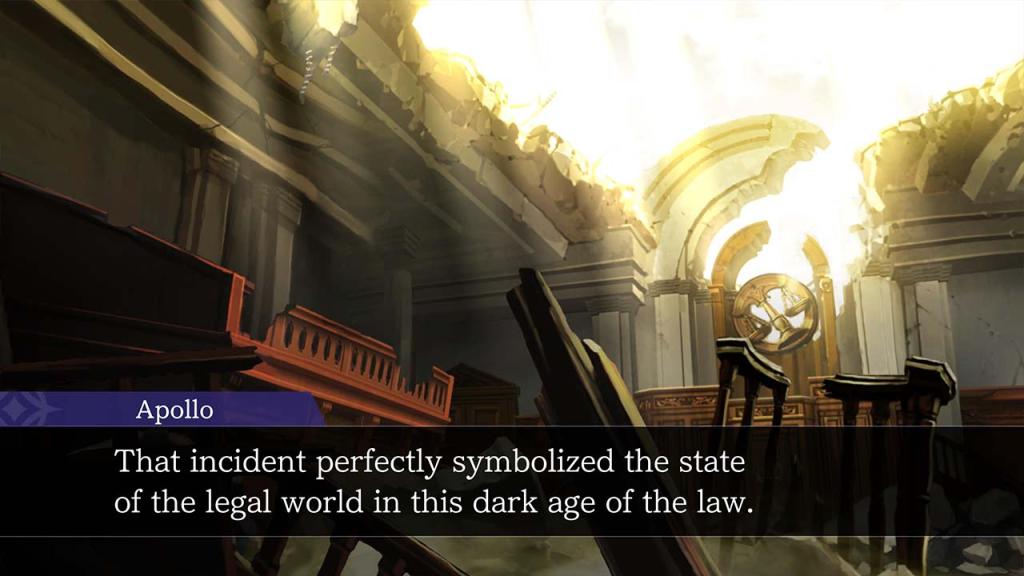
As for the games themselves, Apollo Justice: Ace Attorney Trilogy is a bit of an odd collection. From what I’ve gleaned in Reddit threads full of die-hard fans, Apollo Justice was a contentious entry. The primary complaint is that the game supposedly The Last Jedi’d Phoenix Wright in an attempt to pivot the franchise in a new direction. Fortunately, this is all academic to me. The trilogy’s admittedly convoluted plotting and soapy melodrama landed without baggage and subsequently fared much better. If anything, Dual Destinies and Spirit of Justice’s re-pivot back to the blue-suited protagonist of the previous trilogy dramatically underserved the potential of Apollo as a character; his naivety and hunger for justice made set dressing rather than focus.
Instead, the trilogy winds up an uneven ensemble legal drama, its foundations and focus shifting from one foot to the other, game to game. While Apollo Justice coasts by on some excellent vibes and the novelty of returning characters, and Spirit of Justice leans all the way into the heightened fantasy elements that are peppered throughout earlier worldbuilding, Dual Destinies is the one I find most fascinating. It’s kind of a mess, both in terms of raw pacing and ideological concept, but I found it compelling from the jump, watching on as a bombing lays waste to the courtroom and the self-proclaimed Dark Age of the Law begins.
It’s so unapologetically self-serious in its ideation, so deeply committed to building on the threads of corruption as established in Apollo Justice, presenting the player with a new landscape, one that is ostensibly ready to leave traditional notions of justice in the past and forge a new, harsher path forward. It’s not entirely successful, that character re-pivot running interference, but I love me a swing and a miss if the swing is as committed as this. It fully tracks that fans prefer Apollo Justice’s tighter focus or Spirit of Justice’s wonderful turn for the fantastical, though I secretly yearn for a world in which this trilogy activates a new wave of Dual Destinies sleeper agents like myself.
Apollo Justice: Ace Attorney Trilogy – the verdict
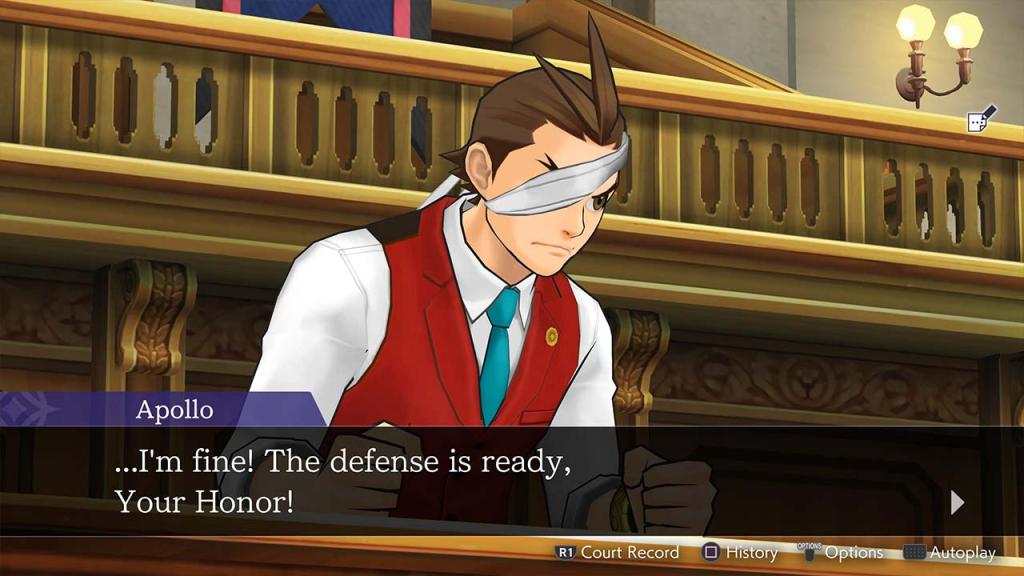
Apollo Justice: Ace Attorney Trilogy isn’t just the definitive way to experience this oddity of a trilogy; it’s the holistic way. Between its beautiful encapsulation of the franchise’s expressive animations, its extensive suite of quality-of-life options and accommodation of playstyles, and bountiful galleries of fan service and documentation, the package makes its case and then some. The games, despite some minor fumbles, also remain more than capable of capturing a newcomer, their chimera approach to the mystery genre resulting in experiences that struggle to sit side by side but standalone extremely well.
Oh, and if you’re wondering what Google had to say about Apollo’s potential leanings, I found a popular fan theory that he’s a gay transmasc and to that, I have zero OBJECTIONs.
Apollo Justice: Ace Attorney Trilogy is out January 24 on PC, Nintendo Switch, PlayStation 4 and Xbox One.
Review conducted on PlayStation 5 with a pre-release code provided by the publisher.
Image: Capcom
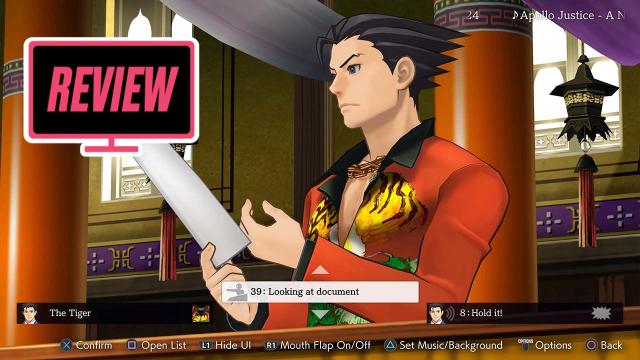
Leave a Reply